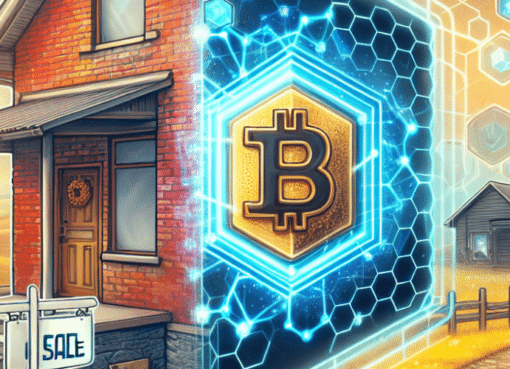In an unprecedented move that’s set to revolutionize the renewable energy market, a new blockchain platform has been launched that facilitates the trading of solar energy credits in real-time. This groundbreaking initiative, which began rolling out across the United States earlier this week, aims to enhance the efficiency and transparency of renewable energy transactions, while also empowering small-scale producers.
The platform, named SunChain, allows individuals with solar panels to sell their excess energy directly to others in their community, bypassing traditional power grids and utility companies. This peer-to-peer transaction model not only optimizes the use of renewable energy but also significantly reduces costs associated with energy distribution and consumption.
Harnessing Blockchain’s Potential for Energy
Blockchain technology, best known as the backbone behind cryptocurrencies like Bitcoin, offers a decentralized and secure ledger that records all transactions across a network of computers. Applying this technology to the energy sector, SunChain provides an immutable and transparent method of recording energy transactions, ensuring accuracy and trust among users.
For homeowners with solar panels, this means they can now become active participants in the energy market, generating a new stream of revenue by selling their surplus power. Conversely, consumers gain access to a cheaper, sustainable power source, which could dramatically lower utility bills especially during peak consumption periods.
Economic and Environmental Impacts
The economic implications of this new blockchain application are profound. By democratizing the energy market, SunChain effectively reduces the monopoly of traditional power providers, potentially leading to more competitive pricing and an increase in renewable energy adoption. This shift is not only beneficial for the wallet but crucial for the environment as it could significantly cut down on fossil fuel reliance and carbon emissions.
Moreover, this system incentivizes the installation of more solar panels as it offers a tangible financial return on investment, accelerating the transition towards a more sustainable and resilient energy grid.
Challenges and Future Prospects
Despite the optimistic outlook, the integration of blockchain into energy trading comes with its set of challenges. Regulatory hurdles are a significant concern, as current energy laws do not account for individuals as utility providers. Additionally, there is the technical challenge of scaling the system to accommodate national, if not global, energy demands.
Experts in the field, however, remain hopeful. They believe that with adequate regulatory frameworks and continuous advancements in blockchain technology, these hurdles can be effectively overcome. The future may also see the expansion of this model to other forms of renewable energy, such as wind or hydroelectric power, creating a comprehensive, sustainable energy trading platform.
Immediate Reactions and Industry Response
The response to SunChain’s launch has been overwhelmingly positive, with several environmental groups and renewable energy advocates endorsing the platform. Energy economists are keenly observing this experiment, as it presents a real-world application of blockchain technology outside the financial sector, potentially setting a precedent for future energy policies and technologies.
Utility companies, on the other hand, are cautiously evaluating the impact this could have on their current business models and infrastructure. Some progressive companies have expressed interest in adopting blockchain technology themselves, indicating that the future energy market might be more collaborative than competitive.
Conclusion
As SunChain begins its operation, it not only represents a significant step forward in blockchain application but also marks a potential turning point in how we consume and trade energy. This initiative aligns with global efforts towards carbon neutrality and sustainable living, portraying blockchain not just as a financial tool, but a technology that could solve some of the most pressing environmental challenges of our time. The success of this platform could very well dictate the pace and direction of both future blockchain ventures and renewable energy policies worldwide.




